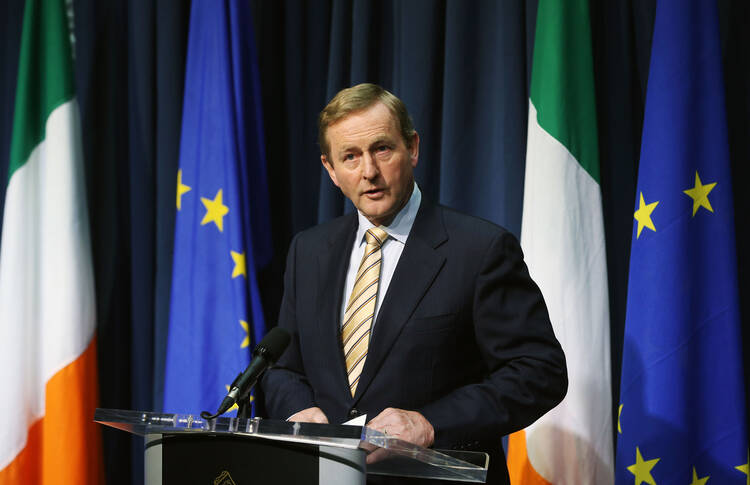In the months leading up to the Brexit referendum, few people in Ireland truly believed that Britain would vote to leave the European Union. That’s not to say there was complacency; possible scenarios played out on our national media for months, while the Irish government treaded a fine line between persuasion and meddling in an attempt to sway the 500,000 Irish people residing in the United Kingdom to vote Remain.
Now that the full weight of reality has fallen, a low-level anxiety has once again taken hold over the future of Northern Ireland, which, like Scotland, voted to remain in Europe but was outvoted by England and Wales. Seizing the moment, Sinn Féin’s Martin McGuinness, deputy first minister for Northern Ireland, called for a poll on Irish reunification, saying the North was being dragged from Europe on the tails of England.
Theresa Villiers, the Secretary of State for Northern Ireland, who has the ability to call the poll, was quick to dismiss the idea. The Good Friday agreement, which created peace in Northern Ireland, only allows for a border poll when there’s widespread public support for a united Ireland. In the post-Brexit uncertainty, few are looking to prod the already delicate peace process.
Perhaps the most worrying prospect for Northern Ireland, aside from the post-Brexit economic hit, is the reintroduction of border controls with the Republic. In a recent policy paper, academics at Durham and Newcastle Universities said there was “virtually no possibility” that the border could remain without controls. In the lead-up to the vote, bishops in Northern Ireland warned that border controls would be psychologically dangerous, undermining relationships and creating a visual division not seen since the height of The Troubles.
Those in the Leave campaign sought to ease fears by insisting that a border would not be introduced and the common travel area would remain. But this assurance is undermined by the central driving force of their campaign: controlling immigration. If their aims are sincere, a heavily policed border between the Republic and the North will be necessary. For a new generation that doesn’t remember militarized borders, it is an alien and frightening concept. For those who lived through it, it is a visual reminder of a fear and oppression that Ireland has worked very hard to leave behind.
One of the main failures of the Remain campaign was to center its argument on the economy, which did little to address the emotional, deep-rooted and ideological motivations to leave. Many people outside the economic centers in the United Kingdom feel left behind by the system, alienated from the bureaucratic elites in Brussels and threatened by slow growth and inward migration. In the days since Brexit, disturbing images of racism towards immigrants in the United Kingdom have appeared on social media, demonstrating the deep tensions that Brexit has dug up. Brexit could further stir the existing tensions in Northern Ireland once the country begins the process of separating further from the Republic.
It’s unfair to write about Northern Ireland in purely negative terms, given that it has thrived and grown despite the darkest of times. But in the political drama and market turmoil, Northern Ireland must not be an afterthought in the Brexit negotiations. It may be a small part of the United Kingdom, but it will suffer the most severe consequences. It is everyone’s responsibility, including the Republic of Ireland and Europe, to ensure that any border fits the more-hopeful present and doesn’t bring us back to a painful past.
Rhona Tarrantis America's Dublin correspondent.








